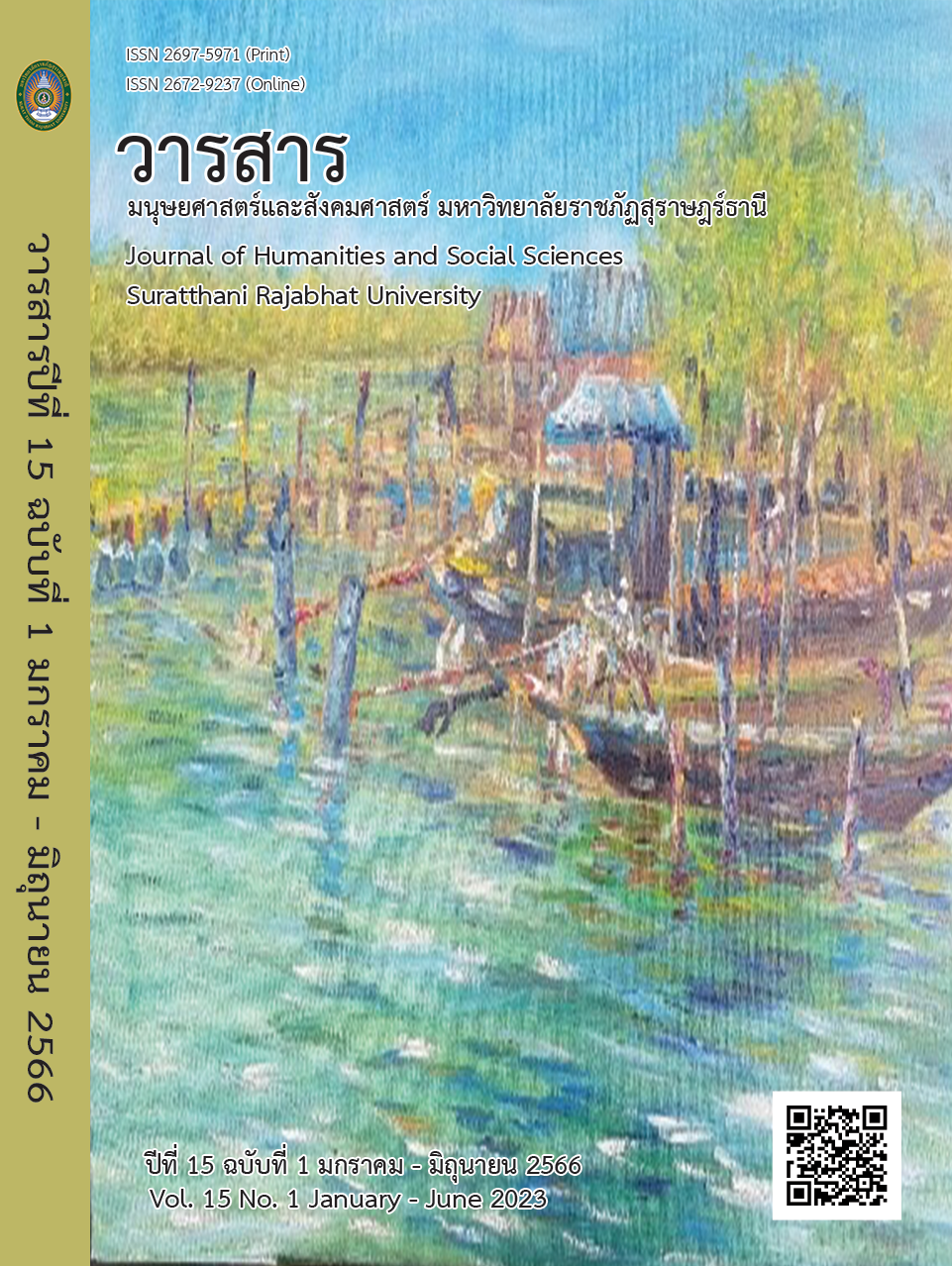Thai Politics after the 2014 Coup and the Concept of Conquered Free States of Machiavelli
Main Article Content
Abstract
This academic article aims to study the social and political
governance methods of the National Council for Peace and Order (NCPO) after the 2014 Military Coup to compare the relationship between the
political phenomena of the period and the concept of Conquered Free States with their Laws and orders. As it appears in chapter 5. "The Prince" of Italian political philosopher, Niccolo Machiavelli. The results showed that the political and social form of government of the National Council for Peace and Order, led by General Prayut Chan-o-cha as the head. This is
consistent with the concept of the country's governance model after the seizure of power by the new ruler. There is an idea as follow 1) The new ruler should destroy everything of the former ruler in line with the announcement of the termination of the Constitution of the Kingdom of Thailand B.E. 2550 by the National Council for Peace and Order. As a result, the country's
socio-political structure at both the national and local levels is disrupted; and 2) The new ruler must closely control the activities of the state in order to stabilize himself and deter opposition from his opponents. This is in line with the centralization of power by the National Council for Peace and Order (NCPO) governments and the declaration of a state of emergency in many areas to prevent future seizure of power from the civilian government. The author suggests guidelines for building political strength in various sectors as follows: 1) Containing democratic governance courses suitable for all ages and 2) Opening public spaces for expressing political opinions, and 3) Increasing
Decentralization of governance to locality.
Article Details

This work is licensed under a Creative Commons Attribution-NonCommercial-NoDerivatives 4.0 International License.
All published manuscripts have been verified by peer-peer professors in the fields of humanities and social sciences. Reprinting of the article must be authorized by the editorial staff.
References
ชัยอนันต์ สมุทวณิช. (2527). ทหารกับการเมืองไทย (พิมพ์ครั้งที่ 2). กรุงเทพฯ:
วิคเตอรี่ เพาเวอร์พอยท์.
นิกโกโล มาเคียเวลลี. (2560). เจ้าผู้ครองนคร [The Prince] (พิมพ์ครั้งที่ 10) (สมบัติ
จันทรวงศ์, ผู้แปล). กรุงเทพฯ: มูลนิธิเพื่อการศึกษาประชาธิปไตยและการ
พัฒนา.
บัณฑิต จันทร์โรจนกิจ. (2558). รัฐธรรมนูญแห่งราชอาณาจักรไทย: ความเป็นมาและสาระ
สำคัญ. กรุงเทพฯ: สถาบันพระปกเกล้า.
ปฐวี โชติอนันต์. (2564, มกราคม–มิถุนายน). ความสัมพันธ์ระหว่างรัฐกับองค์กรปกครอง
ส่วนท้องถิ่นภายใต้บริบทการกระจายอํานาจในยุครัฐบาลของคณะรักษาความ
สงบแห่งชาติ (พ.ศ. 2557 - 2562). วารสารการบริหารปกครอง (Governance
Journal), 10(1), 41-76.
ประภาพร สีหา. (2560, กรกฎาคม-ธันวาคม). ความขัดแย้งทางการเมืองกับรัฐประหาร
ปี พ.ศ. 2557. วารสารรัฐศาสตรปริทรรศน์ มหาวิทยาลัยเกษตรศาสตร์,
(2), 145-166.
พลวุฒิ สงสกุล. (2564, 21 พฤษภาคม). 5 หัวหน้าคณะรัฐประหารที่เป็นนายกรัฐมนตรี.
เดอะ สแตนดาร์ด, 1. https://thestandard.co/5-thai-coup-leader
โพสทูเดย์. (2557, 16 กรกฎาคม). คสช.สั่งงดเลือกตั้งท้องถิ่น-ให้สรรหาแทน. โพสทูเดย์,
https://www.posttoday.com/politic/news/306853
รัฐประหาร 22 พฤษภาคม 2557. (2564, 15 กุมภาพันธ์). ไซด์ กูเกิล, 1. https://sites.
google.com/site/thaigoverment25162557/rathprahar-22-
phvsphakhm-2557
สงกรานต์ รัตน์พลที, และ ณัฐกานต์ อัครพงศ์พิศักดิ์. (2562, พฤษภาคม – สิงหาคม).
ผลกระทบจากรัฐประหาร 22 พฤษภาคม 2557 ต่อการเคลื่อนไหวของกลุ่ม
“ดาวดิน”. วารสารการเมืองการปกครอง, 9(2), 93-105.


